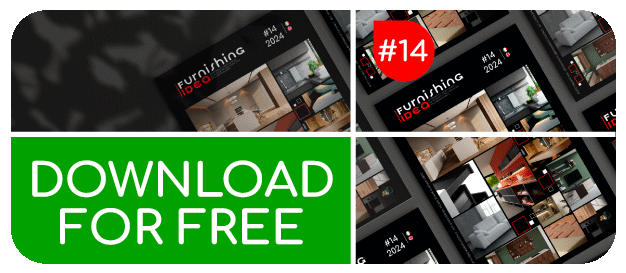
- 18/12/2023
- Companies: strategies and future
Always at the forefront of aluminium processing for the furniture industry, Ossicolor is today a technologically advanced, decidedly 'green' reality, always working on new projects to be transformed into successful products.
We put a few questions to Roberto Masciocchi and Manuel Cecchele, the two owners of Ossicolor.
Year-end, time to take stock and strategise for the future. What goals do you set yourself to tackle the markets in 2024?
The balance sheet for 2023 is undoubtedly positive considering the turnover and the tumultuous events that have influenced market trends. However, the economic crises of recent years have shown us how passively enduring events, waiting for the storm to abate, can prove to be a risky tactic. Instead, we believe it is appropriate to combine shrewd financial management with a development strategy that is attentive to seizing opportunities related to the changes taking place. This allows us to view the future of the industry with optimism, confident in the continued structural and economic growth of our company. Indeed, we are convinced that we must push the frontiers of design beyond the mere creation of stand-alone elements. Our desire is to create real living systems, where the integration of several objects and languages can merge into a new perception of space. With this approach, we decided to focus on the creation of outdoor kitchen lines that carry their own style, function and characteristics that can also be used indoors.

Alubox, a modular solution for building indoor and outdoor kitchens, made of 100% aluminium
A further objective is the extension of our finishes, obtained by the combined effect of anodising and liquid painting, so that the colours obtained are not distinguishable into painted and oxidised, but switch seamlessly from one technology to the other, leaving it only to the imagination of our partner to differentiate them.
Sustainability is now considered a great opportunity for companies. How is this concern for the environment expressed in your company?
Ossicolor was founded over 50 years ago in Spormaggiore (Tn), a splendid area in the Paganella Plateau, which bestows beauty and demands respect, the two cornerstones around which the company wants to continue to grow in the market for the supply of aluminium components, especially in the world of furniture.

The Ossicolor headquarters in Spormaggiore (Tn)
Green' is what our customers demand, but above all we feel it within us: it is a thought shared by the founders who chose to develop the company by opting for the least impactful finishing technologies.
Materials such as plastic, cardboard and aluminium are already completely recycled, and in spring 2024 a pilot plant, developed in collaboration with Prof. Giovanni Straffelini of the University of Trento and Officine di Cartigliano, will come into operation, capable of transforming aluminium sludge into alumina powder. The goal of producing without generating waste is ambitious, but we like challenges and therefore we always face them with courage and innovative strength.
Design and technological innovation were until now the winning elements for new products; to these is now added the customisation factor, which is also becoming increasingly important in the subcontracting sector for the furniture industry. How do you respond to this trend?
The implementation of Industry 4.0 in the company has enabled the creation of a production environment in which machines and software talk to each other, making it possible to manage a very large number of variants. The classic distinction between mass production and craftsmanship has now lost its meaning in favour of a flexible production system capable of producing small batches, using the most advanced automation technologies. Man's creativity in industrialising the product once again assumes a central role, making it possible to satisfy customer demands without this resulting in an increase in cost.
And it is always the creative initiative that lies at the heart of any customisation process; this is the crucial element that succeeds in emphasising the customer's particular demand for differentiation. With the creative initiative, we succeed in bringing a project, which at base is generalist, closer to the more specific intentions of our interlocutor.


 en
en  Italian
Italian French
French German
German Spanish
Spanish Portuguese
Portuguese









